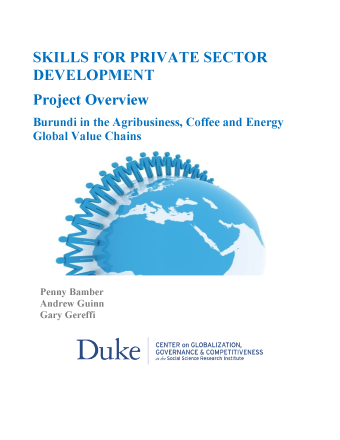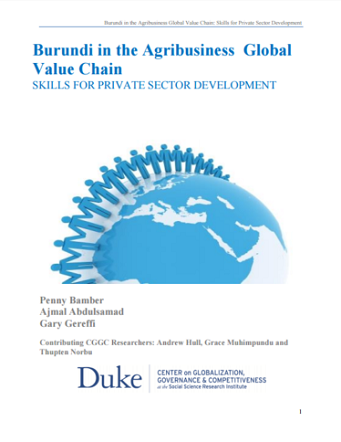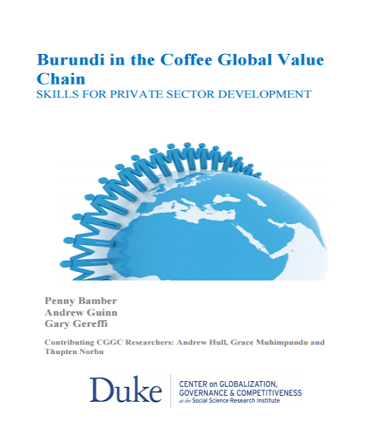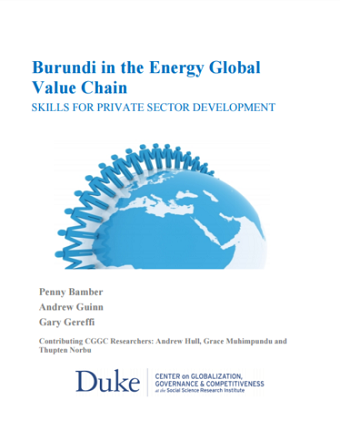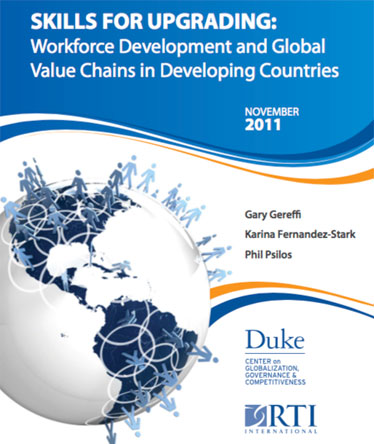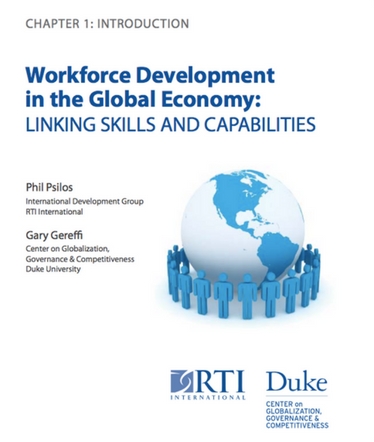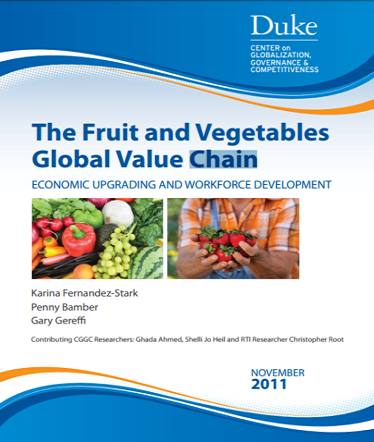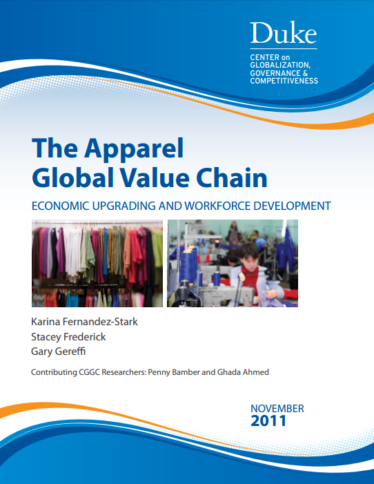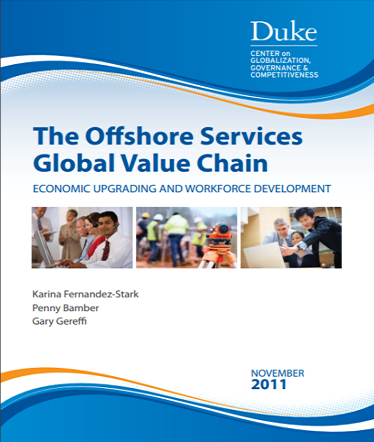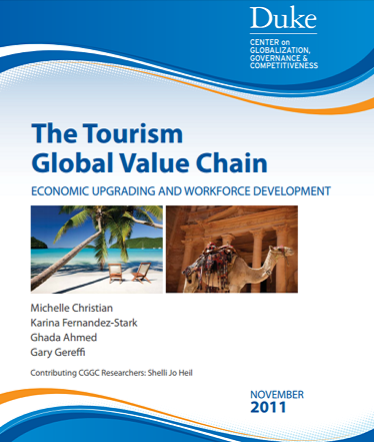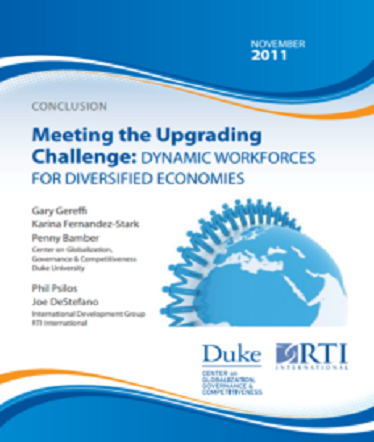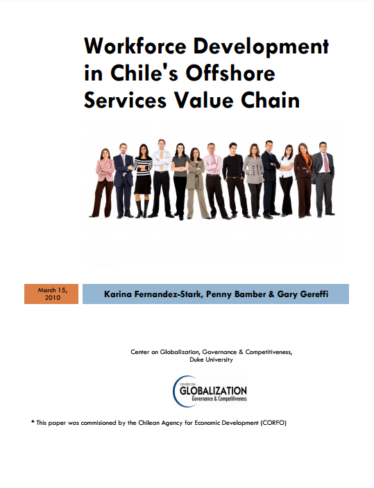Duke GVC Center’s research shed light on workforce development-related questions such as:
These issues impact not only businesses, but also governments, industry associations, international organizations and educational institutions. Responding effectively to these challenges enables countries to be more competitive and companies to be more profitable.
CLIENT CASE STUDIES RELATED TO WORKFORCE DEVELOPMENT
The Center conducted in-depth research on workforce development for RTI International, OECD and the World Bank. The following is a snapshot of the ways the Duke GVC Center has generated impact for these clients.
Skills for Upgrading: Workforce Development and Global Value Chains in Developing Countries
Client: RTI International
Challenge: How can workforce development strategies enhance the upgrading efforts and competitiveness of developing countries in global industries? The goal of this research project was to provide insights to this question for policymakers, donors and development practitioners.
Approach & Outcome: To better understand the relationship between upgrading and workforce development, four dynamic global industries – fruit and vegetables, apparel, offshore services and tourism – were studied in 15 developing countries including Bangladesh, Chile, Costa Rica, Honduras, India, Jordan, Kenya, Morocco, Nicaragua, Philippines, Sri Lanka, Turkey and Vietnam. The research was carried out in three main steps:
(1) Map the structure of each industry GVC in terms of its main activities, value adding stages, and firms;
(2) Identify and analyze the participation of individual developing countries in GVCs in order to show the main challenges at entry, middle and high levels of upgrading; and
(3) Analyze and compare the role of workforce development initiatives when a country upgrades.
Based on this research, the Duke GVC Center highlighted commonalities across industry case studies and stages of upgrading. The research team then recommended workforce development initiatives that would enhance economic and social upgrading.
Skills for Private Sector Development: Burundi in the Agribusiness, Coffee and Energy Global Value Chains
Client: World Bank
Challenge: Burundi has experienced several years of modest growth and improved political stability since the end of its major political conflict in the early 2000s. Agribusiness, coffee and electrical energy are three industries crucial to the country’s development. The goal for the Skills for Private Sector Development project was to identify specific strategies for upgrading within these industries. This would help Burundi promote its development, generate export earnings while expanding employment (particularly among youth) and raise incomes.
Approach & Outcome: The GVC framework examines the shifting organization of global and regional industries by analyzing the characteristics and dynamics of different firms and suppliers involved in these activities. The Duke GVC Center team used this framework to identify sector-specific opportunities for upgrading Burundi’s participation in each value chain.
